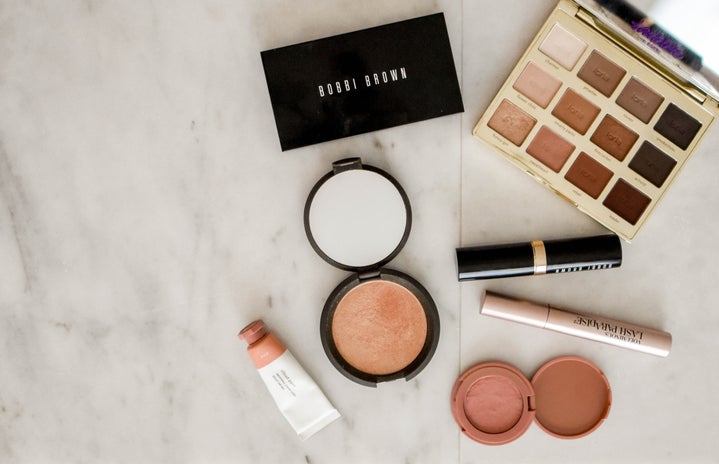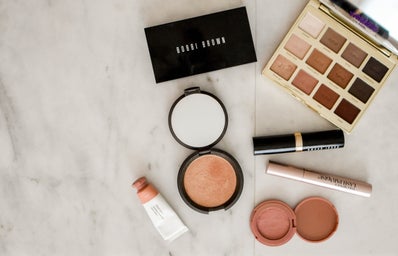Growing up, I wasn’t the most confident in my appearance. I hadn’t yet learned how to manage my curly hair, I had quite the unibrow, glasses and braces in fourth grade, and let’s not forget about the cystic acne that plagued my face the past six years. My reflection was something I’d avoid—not for reasons of empowerment or to defy the structures put in place by society, but because I was embarrassed. As I’ve gained a better understanding of who I am and want to be—along with the discovery of tweezers and leave-in curl creams—my reflection has become something I’ve learned to embrace. It was for this reason that upon hearing about an assignment in my introductory Gender, Women & Sexuality Studies course, I was nervous.
The premise of the assignment on the class syllabus goes as follows:
“Mirrors are a way that we reflect on and judge ourselves; what would it be like to live without them? Graduate student Kjersten Gruys avoided mirrors for an entire year as a way to challenge how her appearance affected herself-esteem and wrote about it in a blog. To complete this assignment, avoid looking in the mirror for one week…Write about your experience.”
My eyes went wide and my mind began to race. A whole week avoiding my reflection? How am I going to do this? I’m very aware of the way I present myself to others and truthfully, look at my reflection far more than what is probably deemed acceptable in society. Holding positions on campus where I’m required to represent a certain population, I couldn’t just abandon the mirror completely; I still needed to be able to get ready in the morning in a way that was seen as acceptable by my supervisors. However, I became excited about the assignment when I thought about it with my own twist that would still allow me to challenge myself. Through the removal of Snapchat and video-chatting apps on my phone, as well as the avoidance of my reflection during the day, I experienced the benefits and challenges that not looking at my reflection had on my identity and engaged in self-reflection on the way my appearance affects the ways in which I interact with society.
I thought that perhaps since I was taking a different approach to the assignment, it could be a bit more manageable; I quickly found that was not the case. First, I deleted Snapchat since it’s one of the main culprits of how often I look at my reflection. Within ten minutes of deleting it, I found myself unlocking my phone and subconsciously, my thumb went straight to where the app used to be—truly terrifying. I then deleted my video-chatting apps due to the fact that I tend to look at myself just as much, if not more, than at the person I’m calling. It’s never intentional, but I’ve found that as humans, we have odd fascinations with our reflections and gravitate towards them. It was for this reason that avoiding my reflection in windows and the bathroom was extremely difficult. While washing my hands, it was tempting to just look up at myself in the mirror. What if my hair is messed up? What if there’s something in my teeth? So many self-conscious worries I’d now have to ignore. While the deleting of these apps was an interesting experiment, the most enchanting aspect was how much my thoughts on my appearance shifted when I wasn’t even looking at myself at all.
Throughout the past week, I realized something that author Kjerstin Gruys expressed in an interview shown in lecture; no matter how many times you look in the mirror, it’s not going to change. Constantly looking at my appearance not only made me somewhat egotistical, it accentuated features I was insecure about due to so much exposure. Not looking at myself, I became less self-conscious and a lot happier. Energy and thoughts that were spent critiquing myself were now put into little activities that would improve my day, such as journaling or talking to someone before class rather than staring at myself on Snapchat to adjust my jewelry.
I was compelled to think critically about appearance and why individuals tend to hold themselves to such high standards. I kept returning to the “ideal woman” advertised in the media: cisgender, thin, lighter skin and eyes, glossy hair, and able-bodied. This is what we’re told is beautiful from the moment we enter society and if we don’t look like that, we are made to feel like a failure. I acknowledge my privilege as someone who is cisgender, thin and able-bodied. However, my other traits aren’t deemed as desirable by society.
Over the years, I’ve learned to embrace who I am. Who cares if I don’t match the stereotypical idea of “beautiful?” I love my melanin, my frizzy curls, and my chocolate eyes. By avoiding my reflection, I was able to recognize the prevalent impact my appearance has on the ways in which I interact with society. While I am far from being in a place where I can disregard the influence of my reflection, I have become more aware and will attempt to incorporate aspects of this activity into my everyday life. After all, Gruys is right. My reflection is not going to change, and if avoiding it can lead to a better sense of self, isn’t it worth it? I am who I am, might as well own it and be proud.


